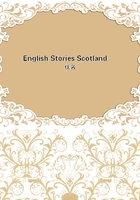
第10章
Drumtochty was accustomed to break every law of health, except wholesome food and fresh air, and yet had reduced the psalmist's furthest limit to an average life-rate. Our men made no difference in their clothes for summer or winter, Drumsheugh and one or two of the larger farmers condescending to a top-coat on Sabbath, as a penalty of their position, and without regard to temperature. They wore their blacks at a funeral, refusing to cover them with anything, out of respect to the deceased, and standing longest in the kirkyard when the north wind was blowing across a hundred miles of snow. If the rain was pouring at the junction, then Drumtochty stood two minutes longer through sheer native dourness till each man had a cascade from the tail of his coat, and hazarded the suggestion, half-way to Kildrummie, that it had been "a bit scrowie," and "scrowie" being as far short of a "shoor" as a "shoor" fell below "weet."
This sustained defiance of the elements provoked occasional judgments in the shape of a "hoast" (cough), and the head of the house was then exhorted by his women folk to "change his feet" if he had happened to walk through a burn on his way home, and was pestered generally with sanitary precautions. It is right to add that the gudeman treated such advice with contempt, regarding it as suitable for the effeminacy of towns, but not seriously intended for Drumtochty. Sandy Stewart "napped" stones on the road in his shirt-sleeves, wet or fair, summer and winter, till he was persuaded to retire from active duty at eighty-five, and he spent ten years more in regretting his hastiness and criticising his successor. The ordinary course of life, with fine air and contented minds, was to do a full share of work till seventy, and then to look after "orra" jobs well into the eighties, and to "slip awa' " within sight of ninety. Persons above ninety were understood to be acquitting themselves with credit, and assumed airs of authority, brushing aside the opinions of seventy as immature, and confirming their conclusions with illustrations drawn from the end of last century.
When Hillocks's brother so far forgot himself as to "slip awa' " at sixty, that worthy man was scandalised, and offered laboured explanations at the "beerial."
"It's an awfu' business ony wy ye look at it, an' a sair trial tae us a'. A' never heard tell of sic a thing in oor family afore, an' it 's no easy accoontin' for 't.
"The gudewife was sayin' he wes never the same sin' a weet nicht he lost himsel' on the muir and slept below a bush; but that's neither here nor there. A' 'm thinkin' he sappit his constitution thae twa years he wes grieve aboot England. That wes thirty years syne, but ye're never the same after thae foreign climates."
Drumtochty listened patiently to Hillocks's apologia, but was not satisfied.
"It's clean havers aboot the muir. Losh keep's, we've a' sleepit oot and never been a hair the waur.
"A' admit that England micht hae dune the job; it's no canny stravagin' yon wy frae place tae place, but Drums never complained tae me as if he hed been nippit in the Sooth."
The parish had, in fact, lost confidence in Drums after his wayward experiment with a potato-digging machine, which turned out a lamentable failure, and his premature departure confirmed our vague impression of his character.
"He's awa' noo," Drumsheugh summed up, after opinion had time to form;"an' there were waur fouk than Drums, but there's nae doot he wes a wee flichty."
When illness had the audacity to attack a Drumtochty man, it was described as a "whup," and was treated by the men with a fine negligence. Hillocks was sitting in the post-office one afternoon when I looked in for my letters, and the right side of his face was blazing red. His subject of discourse was the prospects of the turnip "breer," b ut he casually explained that he was waiting for medical advice.
"The gudewife is keepin' up a ding-dong frae mornin' till nicht aboot ma face, and a' 'm fair deaved (deafened), so a' 'm watchin' for MacLure tae get a bottle as he comes wast; yon's him noo."
The doctor made his diagnosis from horseback on sight, and stated the result with that admirable clearness which endeared him to Drumtochty:
"Confound ye, Hillocks, what are ye ploiterin' aboot here for in the weet wi' a face like a boiled beer? Div ye no ken that ye've a tetch o' the rose (erysipelas), and ocht tae be in the hoose? Gae hame wi' y e afore a' leave the bit, and send a halflin' for some medicine. Ye donnerd idiot, are ye ettlin tae follow Drums afore yir time?" And the medical attendant of Drumtochty continued his invective till Hillocks started, and still pursued his retreating figure with medical directions of a simple and practical character:
"A' 'm watchin', an' peety ye if ye pit aff time. Keep yir bed the mornin', and dinna show yir face in the fields till a' see ye. A'll gie ye a cry on Monday,--sic an auld fule,--but there's no ane o' them tae mind anither in the hale pairish."
Hillocks's wife informed the kirkyard that the doctor "gied the gudeman an awful' clearin'," and that Hillocks "wes keepin' the hoose," which meant that the patient had tea breakfast, and at that time was wandering about the farm buildings in an easy undress, with his head in a plaid.